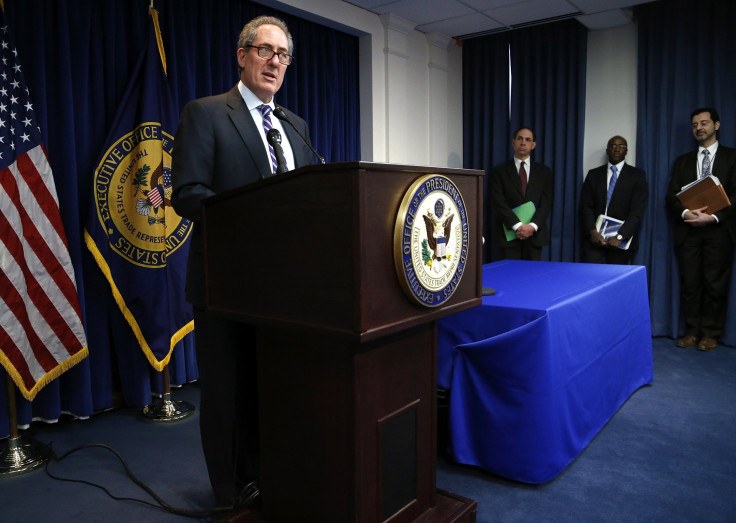US-South Korea Free Trade Agreement Anniversary: Opponents Blast Growth In Trade Deficit, US Job Loss

Three years after a long-awaited free trade agreement between the United States and South Korea took effect, critics say the deal hasn’t lived up to expectations.
“The administration’s promises that the pact would expand U.S. exports and create American jobs proved to be the opposite of the pact’s actual outcomes,” said a news release from Public Citizen, a consumer rights advocacy group that opposes most aspects of modern free trade agreements.
Since the deal’s implementation, the U.S. trade deficit with South Korea has increased by about $12.7 billion, according to data from the U.S. International Trade Commission. Ben Beachy, research director for Public Citizen's Global Trade Watch, says that translates to a net loss of roughly 85,000 U.S. jobs, according to the Obama administration’s own “trade-to-jobs ratio.” In 2010, the Department of Commerce estimated the value of exports needed to create one job at $185,000. By that measure, any substantial decline in net exports translates into job losses.
The U.S. Trade Representative (USTR) does not dispute that the trade deficit with South Korea has grown. It says focusing on the deficit alone is an incomplete means of judging the success of the agreement. The USTR celebrated the pact’s anniversary by pointing to the overall increase in trade volume between the two nations, which grew from $126.5 billion in 2011 to $145.2 billion in 2014.
“The U.S.-Korea trade and investment relationship is substantially larger and stronger than in 2011, and [the agreement] has contributed to a strong and successful 2014 for American exporters,” a USTR statement read.
On a Monday media call organized by Public Citizen, Jon Hansen, director of the Nebraska Farmers Union, disagreed with the emphasis on volume. He said the deal has simply failed to live up to its central promises of more U.S. exports and jobs.
“That is a gap about equal to the size of the U.S. trade balance deficit,” Hansen said, comparing the pact's expectations with its track record. “It is an amazing gulf.”
© Copyright IBTimes 2024. All rights reserved.












